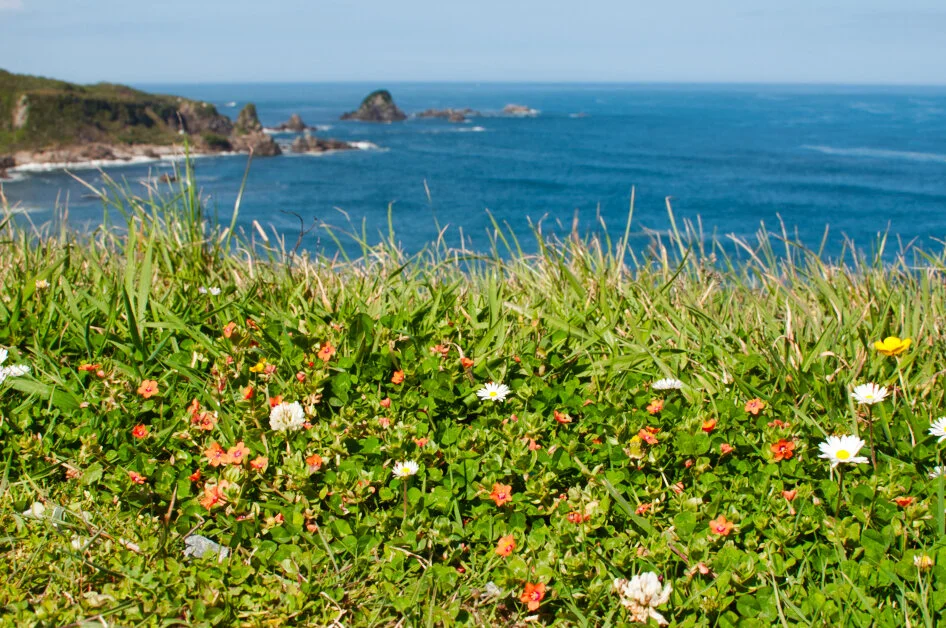My 2020 Retrospective (Also: I've Launched a Podcast!)
May there be golden flowers and blue skies ahead.
This time last year I was contemplating my single New Year’s goal: start my own creative business. At the time, the sum total of my plans was to make a website where I could feature my writing about…well, I wasn’t totally sure. I just knew I wanted to share what I’ve learned through my struggles with burnout, creative blocks, and being a gentle soul. I spent the first few months of 2020 brainstorming writing topics and how I wanted to present myself, and writing multiple drafts of introductory content. I worked on website design, had my partner take “professional” photos of me in my back yard, started a Twitter account to help me promote my work, and wrote and wrote and wrote. Because my business would be built around a weekly blog post, I wanted to have a good number up before I officially launched.
Like many such launches, it was anticlimactic. For the first months I don’t think anyone other than myself, my sister, and a couple friends visited the site. Even now I don’t get more than a handful of hits a day. But it’s slowly ticking up, and I was prepared to be patient. I knew that if I kept showing up and doing the work, if I was authentic and honest about who I am and what I have to offer, my community would grow. I’m okay with letting it all happen organically, in the way it needs to, because I’m enjoying each step along the way. That’s an essential part of starting your own business, I think. You’ve really got to feel a continual renewal of inspiration in order to keep going when there are few external rewards. Fortunately, I’m well versed in trudging along for years with no outward compensation, monetary or otherwise: I wrote a dissertation. At least with my business I’m amply rewarded internally, with the pride and satisfaction I feel in my work.
So I was happily chugging along with my website, when a problem surfaced. I had a second website, called steppingoffnow.com, that I’d set up several years earlier with plans of making it into a travel blog. That idea didn’t pan out (rather fortunately, seeing how 2020 developed), and so I was stuck with this defunct website and the relatively expensive hosting service I’d contracted with. Then the hosting service auto-renewed for another two years. I have an anxiety disorder, which means I’m susceptible to obsessive worry over certain types of things, and wasting money is one of them. This website with its two-year useless and expensive hosting service contract took over my brain. I could not stop feeling like shit about it, and I could not figure out how to solve the problem. It was a loose end that refused to be tied up, and it was driving me nuts.
The solution to the problem came to me in a flash of inspiration so brilliant it took my breath away. I could start a podcast, call it Stepping Off Now, and this wasted website could be its home! And that, my friends, is how I started a podcast in order to solve my anxiety over a hosting service that auto-renewed. I swear it made perfect sense to my stress-addled brain. It was clearly a brilliant solution, anyone could see.
Actually, I’d been thinking of doing a podcast for some time, and it just all suddenly came together. This is embarrassing to admit, but I constantly talk out loud when I’m home alone (who am I kidding, I’m not that embarrassed about it). I talk about everything: my ideas about life, intellectual puzzles, things I’m learning, opinions I’m forming. A podcast seemed like it would be a great outlet for the part of me that wants to share my thoughts out loud but doesn’t enjoy being in front of crowds. And I figured a podcast might help me find a wider audience for my work. Many people aren’t willing to invest the time to read a blog post, and I totally get that, but they might tune into a podcast on their commute or while they’re doing dishes. I like things that cover multiple bases, and starting my own podcast seemed like a solution to a lot of loose ends in my life.
Like I did with my website, I spent a few months brainstorming Stepping Off Now. Would it be scripted or free talk? What was the ideal episode length? What about cover art? I wanted it to be linked to my writing site, but also have a life of its own. I bought a microphone and started practicing. I tried scripted recording and quickly learned that I dislike it. Plus, creating a new script for each podcast episode would take far more time and effort than I was willing to put in. Free talk suited me better, but learning how to talk in a way that sounds natural, yet is dynamic enough to maintain listeners’ interest, is not easy for a quiet introvert like myself! I practiced by recording myself, listening back, and immediately deleting that content. Over and over. I noticed verbal ticks I could stop doing or edit out, and how my voice changed when what I was talking about really interested me. I tried recording in the mornings, at night, at my desk, sitting in my writing chair, with the microphone on a stand, holding the microphone, with the window blinds up, with them down…. And gradually it all came together. I even launched a month earlier than I’d planned, in time to be writing this end-of-the-year retrospective about it.
This year, 2020, will be one that is indelibly inscribed into all of our souls. The world has changed forever. It weighs heavily, even while I’m excited and grateful about how much I’ve accomplished. I want to thank my readers – and now my listeners! – for the time they invest in reading and listening. Here’s to some better times for all of us in 2021 .
❤️ 🎉 🌻

















